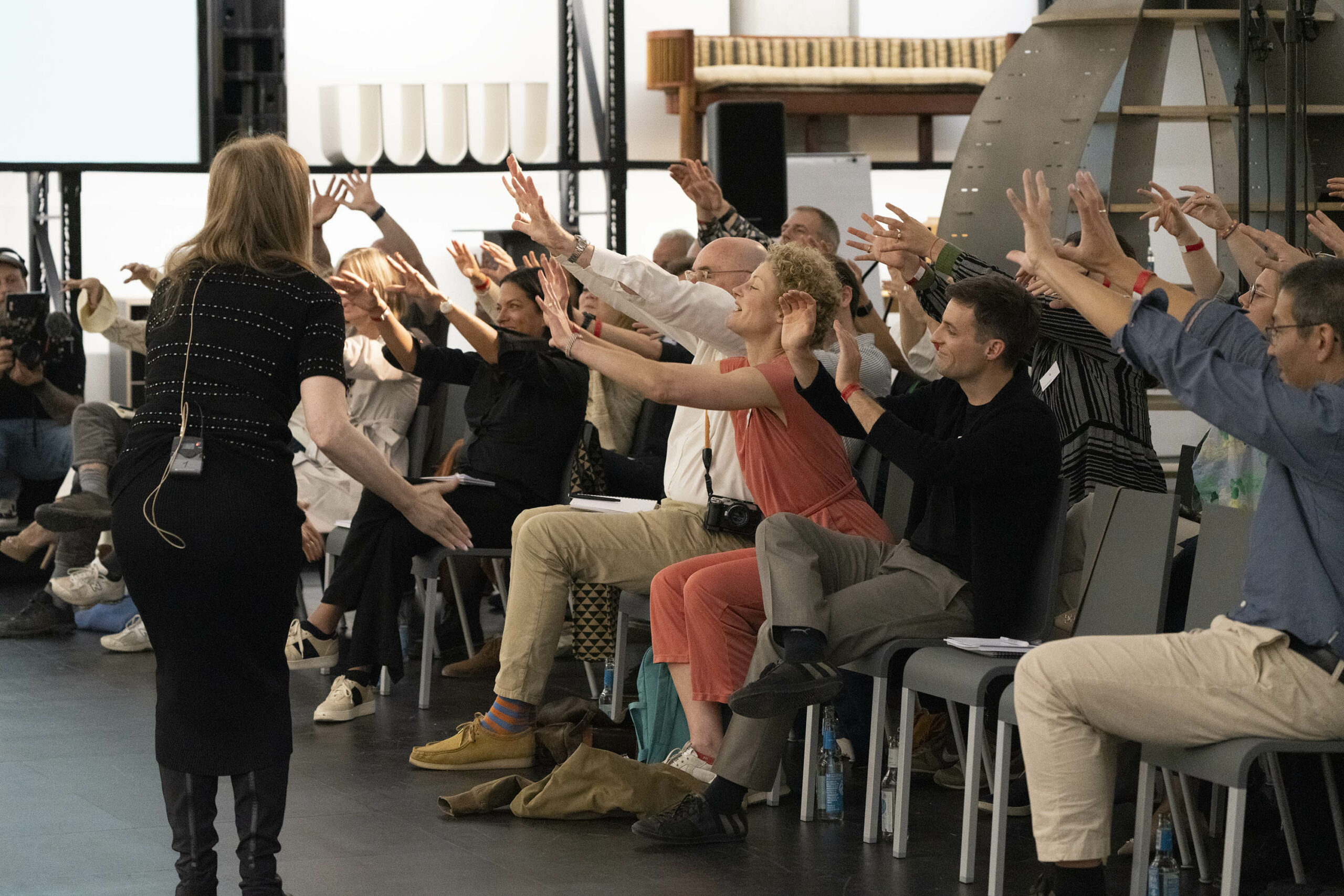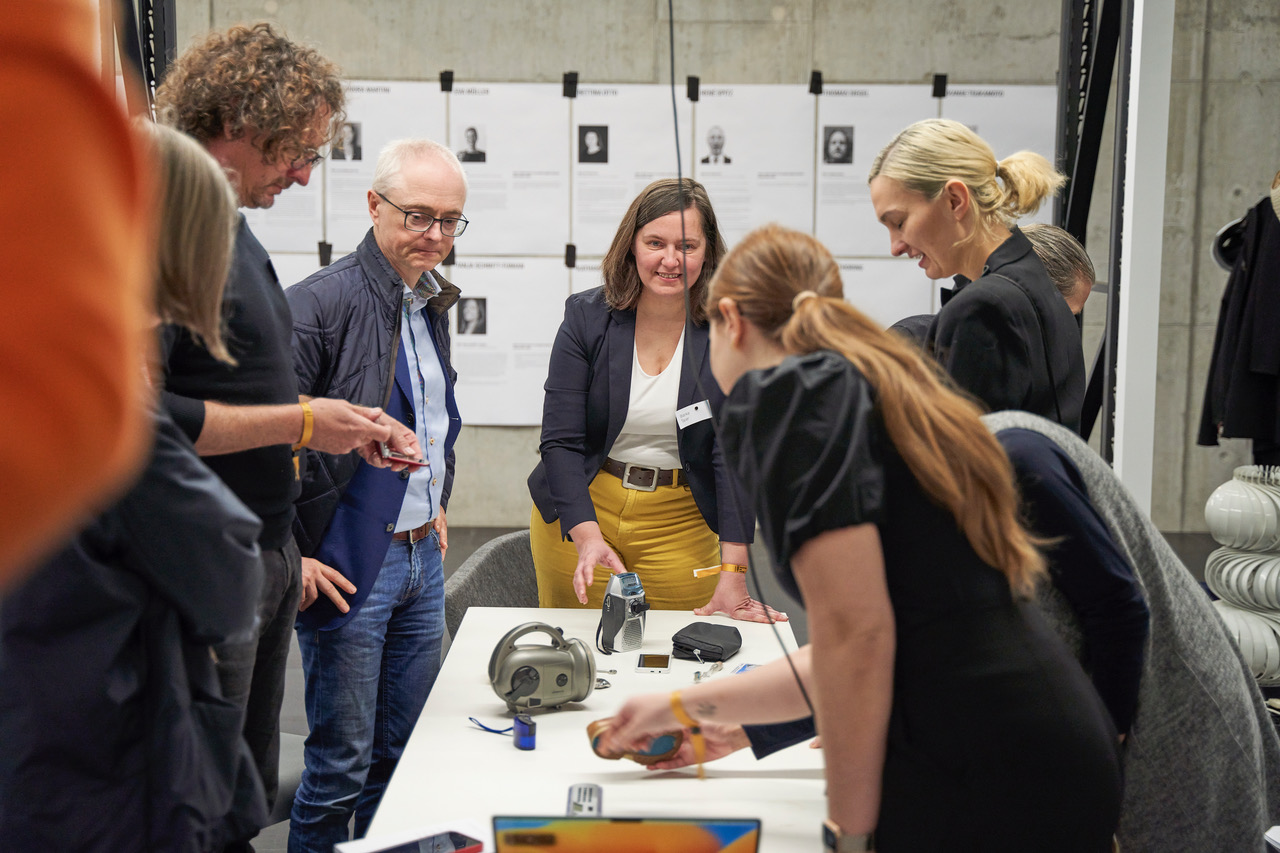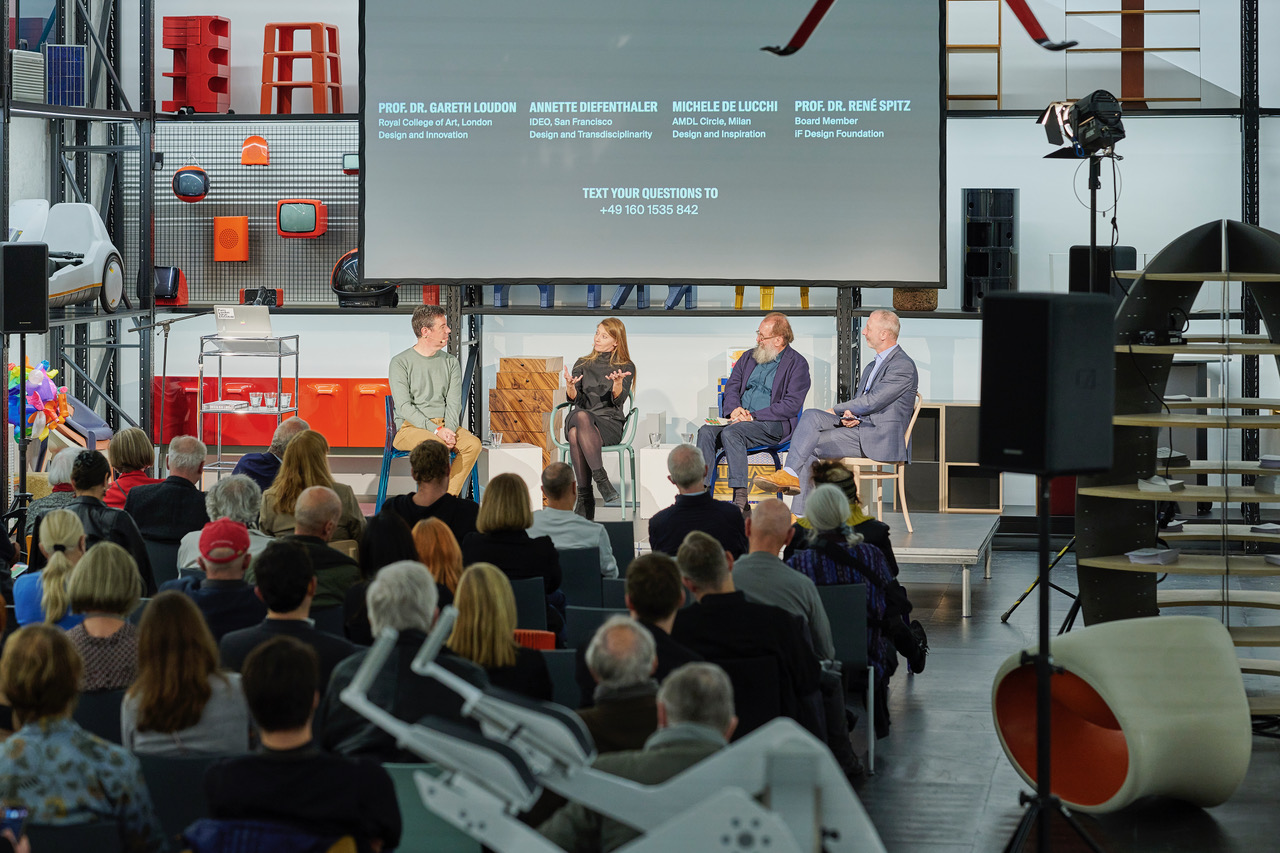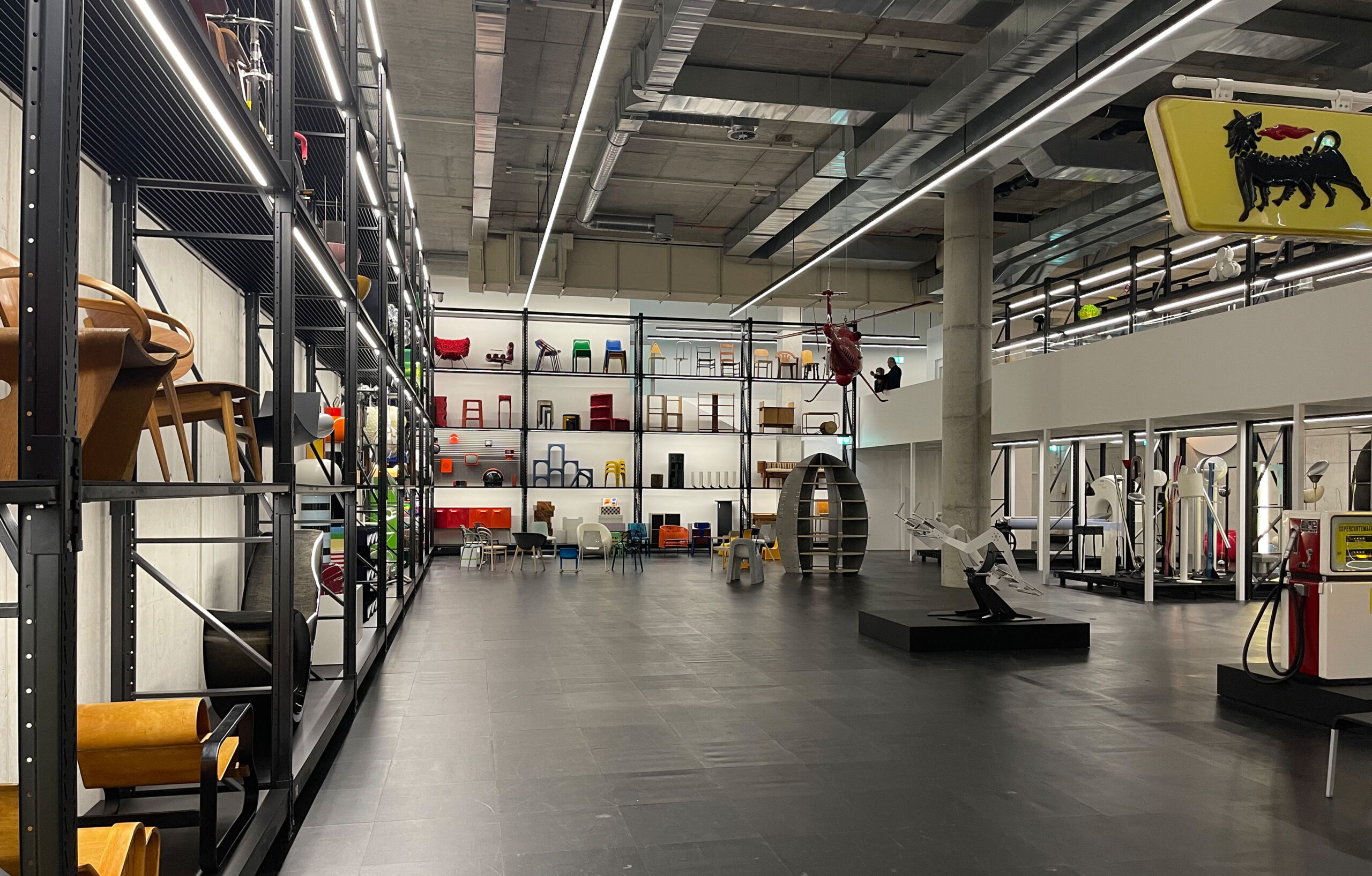Inhaltsverzeichnis
19.–21.03.2024
Impulse für ein neues Curriculum, Teil 3
Künstliche Intelligenz
Workshop am 19./20. März 2024 (mit Anmeldung)
Symposium am 21. März 2024 von 11 bis 13 Uhr (öffentliche Veranstaltung)
Im Rahmen des gemeinsamen Campus der Neuen Sammlung München und der iF Design Foundation findet die nächste Veranstaltung zur Zukunft der Designlehre vom 19. bis 21. März 2024 statt. Die Impulse für ein neues Design-Curriculum richten sich hierbei auf das Thema: Künstliche Intelligenz.
In den ersten beiden Tagen werden dazu Workshops durchgeführt. Ausgehend vom aktuellen Stand der Forschung werden in den Workshops praktische Erfahrungen geteilt und auf die konkreten Situationen der Designlehre angewandt. Am dritten Tag werden die Erkenntnisse reflektiert und gemeinsam mit dem öffentlichen Publikum diskutiert.
Workshop und Symposium werden für eine anschließende Veröffentlichung dokumentiert (Audio, Foto und Video). Veranstaltungssprache ist Englisch.
Impulsgeber »Artificial Intelligence«
Die Impulse werden gegeben von:
- Savannah Kunovsky, IDEO: Getting hands on with GenAI
- Dr. Madeline Gannon, atonaton: Autonomy and robots
- Prof. Dr. John Zimmerman, Carnegie Mellon University: Creating value with moderate ai
- Yusuf Ahmad, Playlab: Getting hands on with GenAI

Savannah Kunovsky
IDEO
As Managing Director at IDEO, Savannah has designed and led new products and ventures for over a decade. She is the Global Head of IDEO’s Emerging Technology Lab, bringing businesses from today’s realities to the worlds we’ll live in next. Prior work includes pioneering Emotion AI for mental health with Dr. John Gottman, co-founding a chain of tech education schools in Sub-Saharan Africa, and building the coding bootcamp industry as a software engineer at Hack Reactor. Recognized by MIT, Forbes, and the World Economic Forum, she’s an early stage advisor who’s propelled startups from ideation through Series B. Savannah is committed to designing tech that serves humanity, the planet, and life on earth.

Dr. Madeline Gannon
atonaton
Dr. Madeline Gannon, a multidisciplinary designer blending techniques in art, design, computer science, and robotics to forge new futures for human-robot relations. Also known as »The Robot Whisperer«, Gannon specializes in convincing robots to do things they were never intended to do: from transforming giant industrial robots into living, breathing mechanical creatures, to taming hordes of autonomous machines to behave like a pack of animals.
Dr. Gannon has been a World Economic Forum Cultural Leader, a Robotics & AI Researcher at NVIDIA and a former artist in residence at ETH Zurich, Autodesk Pier 9, and the Carnegie Mellon STUDIO for Creative Inquiry. She is known as one of the ‚Top 10 Women in Robotics Industry‘ and ‚World’s 50 Most Renowned Women in Robotics’ according to Analytics Insight. Gannon holds a M.Arch from Florida International University, and a Ph.D in Computational Design from Carnegie Mellon University.

Prof. Dr. John Zimmerman
Carnegie Mellon University
John Zimmerman is the Tang Family Professor of Artificial Intelligence and Human-Computer Interaction at the HCI Institute, one of seven computer science departments within Carnegie Mellon’s School of Computer Science. He conducts research on human-AI interaction, human-robot interaction, and AI innovation processes. He teaches courses in UX design, service design, and on the design of AI products and services. He joined the university in 2002. His professional experience includes time at Philips Research investigating new forms for interactive television as well as several years working in film, video, and multimedia production. John is a member of ACM’s CHI Academy and has been an AAAS fellow focused on outreach to the public about AI. He’s published over 150 peer-reviewed papers and authored 40 patents. He regularly speaks on design, HCI, and AI at academic conferences and within the tech industry. While at Philips, he co-invented a method for scrolling touchscreens now used on almost all phones and tablets.
John has 20+ years of experience designing AI products and services. For the last several years he’s explored the idea of AI as a Design Material, including what makes AI uniquely difficult to design. He’s designed TV show recommenders, office productivity tools that automate routine tasks, a system that learns the pick-ups and drop-offs of busy parents and keeps them from forgetting their kids, a decision support tool that helps cardiologists decide when to implant mechanical hearts, a crowdsourced real-time arrival system for transit riders, and smart classrooms that watch instructors teach and offer feedback on their actions and student reactions so they can improve their teaching. Prior to this workshop, he spoke at SXSW 2024 on Designing Successful AI Products and Services.

Yusuf Ahmad
Playlab
Yusuf is the CEO of Playlab, a tech nonprofit that empowers educators & impact organizations to build their own AI tools.
Prior to founding Playlab, Yusuf led new product development for Teach For America, contributed to Scratch (a creative coding platform used by millions of kids), researched at the MIT Media Lab, and was on the founding team of ALU & ALX, a pan-African network of universities and alternative higher ed pathways.
Outside of work, he mentors startups through MIT’s Sandbox Fund, angel invests in AI edtech companies like LitLab and Recess, and is a proud girl dad.
Öffentliches Symposium am 21.03.2024
Jede Campus-Veranstaltung wird von einem öffentlichen Symposium abgerundet, das die Erkenntnisse der Workshops reflektiert und gemeinsam mit dem öffentlichen Publikum im X-D-E-P-O-T der Pinakothek der Moderne diskutiert.
Ausblick
Im Jahr 2024 widmen wir uns den folgenden weiteren Themen:
- Leadership für Nachhaltigkeit & Public Value (18. bis 20. Juni 2024)
- Innovation (15. bis 17. Oktober 2024)
Wenn du dich dafür interessierst, an diesen Workshops teilzunehmen, trage dich bitte in unseren Verteiler ein. Wir werden dich dann rechtzeitig einladen (die Teilnahme ist kostenlos, die Anzahl der Plätze ist begrenzt, Zusagen erfolge in der Reihenfolge der Anmeldungen).





